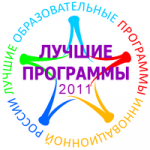|
SibFU team at the Jessup competition - 2021
The Philip C. Jessup International Law Moot Court Competition is an advocacy competition for law students. It is a simulation of a fictional dispute between countries before the International Court of Justice, the judicial organ of the United Nations. Teams of law students compete against one another through the presentation of oral and written pleadings to address timely issues of public international law in the context of a hypothetical legal dispute between nations. This year Jessup was the largest online gathering of international law students in history with more than 600 teams from over 100 countries and jurisdictions. In light of the ongoing COVID-19 pandemic, it was decided to change the format and structure of the competition for this Jessup Season. Held during March and April 2021, the Global Rounds encompass the well-loved Jessup spirit of competition, education, and connection, but in an online format. The five-week-long schedule of events is filled with competitive online matches, professional panel discussions and interviews, and live virtual social events. This year Jessup problem concerned the following issues: The first one concerns a global pandemic in conjunction with the obligations and responses of States in relation to the outbreak. The main problem involved was the legality of one State closing its borders while the economy of another one is strongly connected with the tourism industry and damaged as a result of such entry restrictions. The second issue is a question of diplomatic asylum. Does a State have the right to grant diplomatic asylum to a person who has disclosed information of great importance to the whole world? This question was inspired by the cases of Julian Assange and Edward Snowden. During the competition, the team presented one position that diplomatic asylum is a part of customary law and another position that proves that diplomatic asylum has not received sufficient recognition in the world. The jurisdiction of the International Court of Justice has also become an issue in the present case. Jessup participants have discussed States’ unilateral declarations and reservations to them. The fourth issue considers the grounds of the use of force by States. Does a State have a right to use self-defense against non-state actors especially against terrorists? Is anticipatory self-defense widely accepted in international law and the practice of States? Is it possible to use force against civil aircraft in flight? All these questions exist in conjunction with the State’s positive obligations under human rights law. The team tried to find a balance between the use of force and the right to life. Overall SibFU results in international rounds presented as: - Advanced team - 103 place among 600 participating teams (2nd place among Russian teams) - 128 place Memorial (2nd place Memorial in Russia) |


